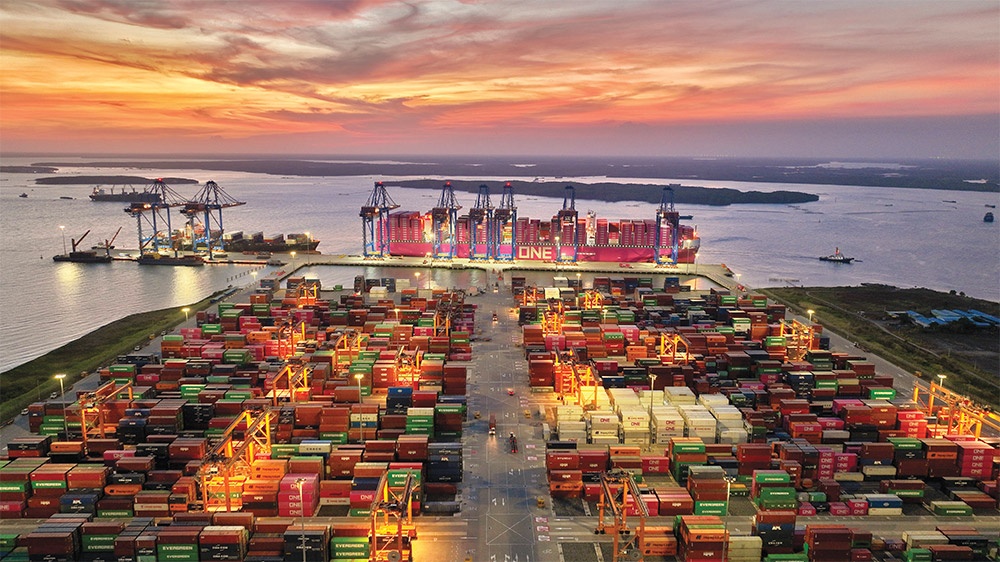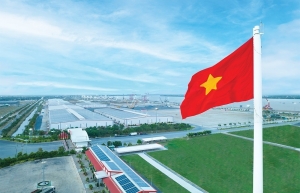Long-term funds to address logistics cost
In early October, Chinese online giant Temu launched in Vietnam with two logistics players, Ninja Van and Best Express, plugged in.
According to Temu’s Vietnam site, shipping will take 4–7 days, much faster than 5–20 days to Malaysia and the Philippines due to the advantage of a land border. Temu is also talking to local e-commerce platforms in Vietnam for a potential acquisition to optimise logistics and scale up its presence in Vietnam.
The expansion of Temu sends a warning to local companies, as the Chinese e-commerce platform offers low-cost products with lower delivery costs. Similar budget platforms from China, like Shein, are already present in Vietnam.
Nguyen Ngoc Trung Huy, strategic sourcing manager at Ericsson Vietnam, said Vietnam faced intense competition, particularly from China, in cross-border e-commerce, and its advantages in pricing, automation, and workforce efficiency give them a significant edge.
“Vietnam’s current logistics costs hinder its digital economy by making local e-commerce less competitive. The domestic market needs stronger support to counteract these challenges, and relying solely on cultural pride and customer loyalty is insufficient,” he added.
 |
| Some logistics costs are hampering efforts in the digital economy and local e-commerce |
According to Statista, revenue in the e-commerce market is projected to reach $13.9 billion in 2024. Revenue is expected to show an annual growth rate of 11.21 per cent from 2024-2029, resulting in a projected market volume of $23.65 billion.
While GDP is strong compared to other regional markets, and government support for digital transformation is on the rise, infrastructure gaps, high costs, and other inefficiencies still exist.
Thomas Harris, global vice president for Supply Chain at Brandpath Group, said high logistics costs in Vietnam, particularly for domestic shipments, presented a significant barrier to e-commerce growth.
“While cross-border shipping from Hong Kong is cheaper due to economies of scale and removing the need for distribution centres in separate countries, these expenses hinder local businesses’ ability to compete with foreign sellers, slowing down the growth of Vietnam’s digital economy,” Harris said.
As competitors like Thailand and Indonesia improve logistics, Vietnam must accelerate investment in technology, streamline processes, and enhance last-mile delivery solutions to remain competitive, he added.
According to the Vietnam Logistics Service Business Association, the average logistics cost in Vietnam is about 17 per cent, still higher than the global average of 10.6 per cent.
Many companies are stepping up investments in logistics and warehouse facilities to reduce such costs. Last week, Mitsubishi Estate held a groundbreaking ceremony for the Logicross Nam Thuan project in the Mekong Delta province of Long An. This warehouse ensures optimal storage conditions for a diverse range of goods, making it an ideal choice for various industries, including third-party logistics, express delivery, e-commerce, and fast-moving consumer goods.
Likewise, BW Industrial Development also held the groundbreaking of its latest project in the southern province of Dong Nai last week. The first phase of BW Tan Hiep Logistics Park offers a total leasable area of over 95,000 square metres.
In addition to the park, BW established Ho Chi Minh City’s first and largest e-commerce logistics hub, serving leading e-commerce and last-mile players since 2019. The hub is home to Shopee’s largest integrated logistics facility in Vietnam, a built-to-suit sorting centre for J&T Express, and a tailored warehouse for Giaohangtietkiem, among others.
To enhance logistics competitiveness and reduce costs, Harris from Brandpath suggests Vietnam can adopt several strategies. Firstly, the government has made strong inroads, and should continue to create favourable policies that promote public-private partnerships to upgrade infrastructure, especially in transportation and warehousing.
“Secondly, heavy investment in digitalisation, such as adopting AI and the Internet of Things technologies for real-time tracking and automation, will improve efficiency. Thirdly, fostering stronger regional cooperation and integrating with global supply chains will enhance cross-border logistics. By reducing regulatory barriers and increasing transparency, Vietnam can make its logistics sector more agile and cost-effective,” he said.
In the same vein, Huy from Ericsson Vietnam noted that Vietnam must focus on productivity, reducing costs through mass production, and employing innovative marketing strategies to engage consumers.
“While improving policies and infrastructure is crucial, simply following competitors’ strategies won’t guarantee success,” he said. “Vietnam should focus on innovation with unique selling points that competitors lack. Prioritising the product itself, along with securing the fastest time-to-market, is key.”
 | Vietnam's logistics sector confronts new challenges Experts and business leaders looked at how Vietnam can overcome challenges and unlock the potential of its logistics sector at the Vietnam Logistics Summit 2024 on October 31. |
 | Digital transformation to compete in challenging logistics market Digital transformation is revolutionising logistics, as technologies like AI, Blockchain, and IoT unlock new levels of efficiency, adaptability, and innovation in supply chain management. |
 | Logistics supply chain efficiency on the rise The expanding consumer market, with abundant supply and a favourable geographical location for penetration and network expansion, is pushing Vietnam’s logistics supply chain to increase efficiency. |
 | Connectivity a factor in positive results of logistics companies Port operators and shipping lines continue to record a robust performance in 2024, reflecting the vibrant potential of Vietnam’s logistics market. Dang Huy Hoang, research analyst at VNDirect Securities, shared with VIR’s Vy Bui the current performance data of Vietnamese logistics companies. |
What the stars mean:
★ Poor ★ ★ Promising ★★★ Good ★★★★ Very good ★★★★★ Exceptional
Related Contents
Latest News
More News
- Vietnam, New Zealand seek level-up in ties (February 19, 2026 | 18:06)
- Untapped potential in relations with Indonesia (February 19, 2026 | 17:56)
- German strengths match Vietnamese aspirations (February 19, 2026 | 17:40)
- Kim Long Motor and AOJ Suzhou enter strategic partnership (February 16, 2026 | 13:27)
- Haiphong welcomes long-term Euro investment (February 16, 2026 | 11:31)
- VIFC in Ho Chi Minh City officially launches (February 12, 2026 | 09:00)
- Norfund invests $4 million in Vietnam plastics recycling (February 11, 2026 | 11:51)
- Marico buys 75 per cent of Vietnam skincare startup Skinetiq (February 10, 2026 | 14:44)
- SCIC general director meets with Oman Investment Authority (February 10, 2026 | 14:14)
- G42 and Vietnamese consortium to build national AI infrastructure (February 09, 2026 | 17:32)

 Tag:
Tag:















 Mobile Version
Mobile Version